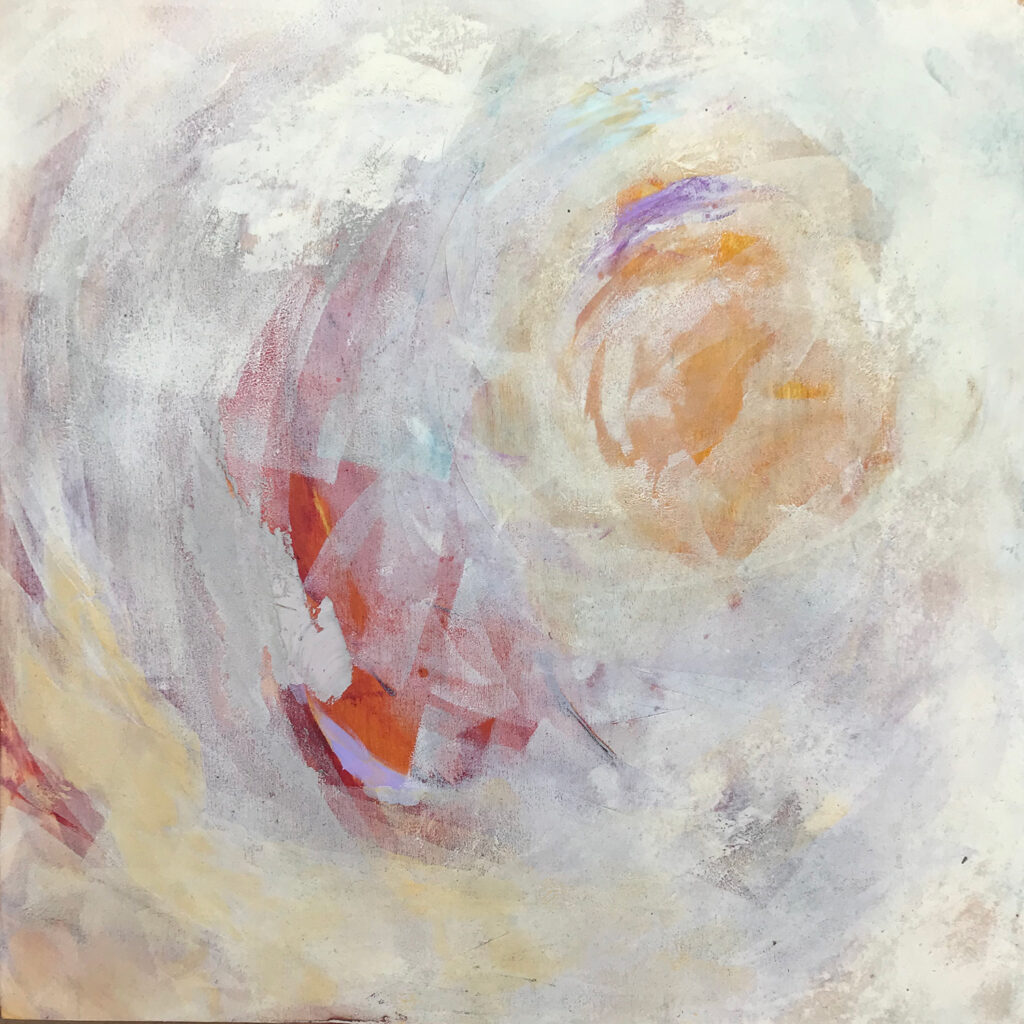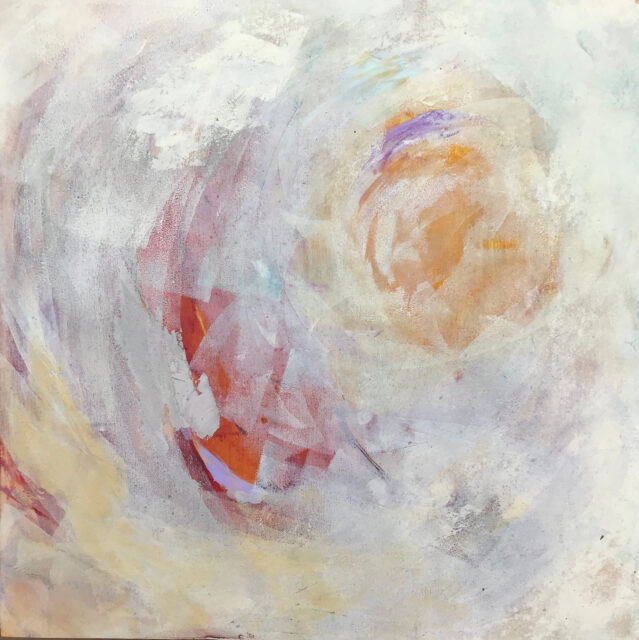How fitting, though unplanned by me, that the last entry I post in this tumultuous year 2020 is Psalm 131! This psalm and this particular painting is my practiced place of determined rest. I set this Psalm to music in my 40’s so I could memorize it and live it better. These words have served me, checked me so importantly and practically! Soak in them for just a moment of your own:
A Song of Ascents, of David (NAS version)
131 O Lord, my heart is not proud, nor my eyes haughty;
Nor do I involve myself in great matters,
Or in things too difficult for me.
2 For Surely, I have composed and quieted my soul;
Like a weaned child rests against his mother,
My soul is like a weaned child within me.
3 O Israel, hope in the Lord
From this time forth
and forever.
We’ve been tracking on this blog my ambition in the present year to finish a long-imagined dream rendering the 15 Psalms of Ascent onto 14×14” cradled panels. There are 3 more yet to show you, but those I’ll talk about next year. For now, it is enough to just stay in this important place for a little while.
King David of Israel spoke these words, likely put it to melody, and also had to learn it the hard way. In other words, this place of repose did not come naturally to him either. His life was complex, but this psalm is not!
This entire collection of 15 Psalms were arranged into the book after Israel’s exile for travel home. Four of these songs were selected from Israel’s archive, from their ancient King. Here are David’s contribution to the whole: 122 (the 1st triplet’s rest Psalm), 124 (the 2nd triplet’s determination to trust), 131, here the result of the 4th triplet’s trial, and then 133 (the last triplet’s middle declaration).
David surely practiced what he talks about here. The imagery of a haughty look is something easy to imagine in any gifted personality exalted to a high place. We have current examples from our own time. But David, from a young age had also a heart after God. Note that God has a true hatred for arrogance. And God won out.
David’s imagery continues with this idea of a weaned child resting against his mother. As one who fed babies, this is poignant to me. If the baby stays close even when the feeding part is over, there is a wonder of rest for both the child and for his mother, skin to skin. It is a matter of just quiet enjoyment, of built relationship. This is priceless. And for many who use God just for what they imagine he can do for them before they quickly run off, this is a hard thing to learn. It takes time and a decision to stay.
The 17th century Catholic mystic Madame Guyon wrote in her autobiography about this very thing. Like David, she’d had to determine where she would reside for “the better part” beyond physical nourishment. David said “I have composed and quieted my soul like a weaned child…” So even past child feeding, there is this place of sumptuous rest. Guyon describes it this way:
“It is not a repose in peace tasted, in the sweetness and mildness of a perceived presence of God; but it is a repose in God himself which participates of his immensity, so much has it of vastness, simplicity and purity.”
In my version here, the key of the painting is much lighter and brighter than the Psalm painting which preceded this (which in fact led to this). No longer is the voice here self-focused but rather enmeshed. The pilgrim here has moved more deeply into God’s side, and more simply into the place of His given repose. For David, for Guyon, even for me and any number of others who know this sweetest place it is a very personal thing.
This is not a corporate psalm; it is in no way a group experience. The last triplet to come in the collection we’ll see is entirely a corporate experience. But this personal expression necessarily comes first, this is a singular place learned and enjoyed. Yet as the last verse here hints, from this place one longs for others to know it also. That’s why all three of us: David in Hebrew, Guyon in French and me in English have labored to put this beauty to words.
As a further treat to end the year, I offer a link, introduced in English spoken in contemporary French and referencing the Hebrew which grounds the hope given therein.

